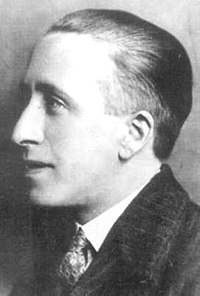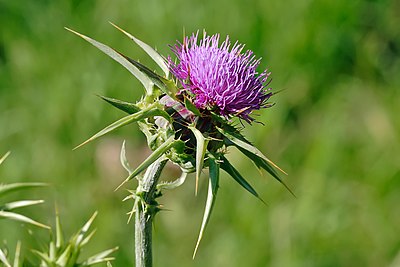
Back بوابة:إسكتلندا Arabic Портал:Шотландия Bulgarian Portál:Skotsko Czech Πύλη:Σκωτία Greek Portal:Escocia Spanish Atari:Eskozia Basque Portail:Écosse French Portal:Escocia Galician Portale:Scozia Italian Portal:Szkocja Polish
| Main Page | Selected articles 1 | Selected articles 2 | Selected biographies | Selected quotes | Selected pictures | Featured Content | Categories & Topics |
Introduction
 |

|
|

| ||
Scotland (Scots: Scotland; Scottish Gaelic: Alba) is a country that is part of the United Kingdom. It contains nearly one-third of the United Kingdom's land area, consisting of the northern part of the island of Great Britain and more than 790 adjacent islands, principally in the archipelagos of the Hebrides and the Northern Isles. To the south-east, Scotland has its only land border, which is 96 miles (154 km) long and shared with England; the country is surrounded by the Atlantic Ocean to the north and west, the North Sea to the north-east and east, and the Irish Sea to the south. The population in 2022 was 5,439,842 and accounts for 8% of the population of the UK. Edinburgh is the capital and Glasgow is the largest of the cities of Scotland.
The Kingdom of Scotland emerged as an independent sovereign state in the 9th century. In 1603, James VI inherited the Kingdom of England and the Kingdom of Ireland, forming a personal union of the three kingdoms. On 1 May 1707 Scotland and England combined to create the new Kingdom of Great Britain, with the Parliament of Scotland subsumed into the Parliament of Great Britain. In 1999 a Scottish Parliament was re-established, and has devolved authority over many areas of domestic policy. The country has a distinct legal system, educational system, and religious history from the rest of the UK, which have all contributed to the continuation of Scottish culture and national identity. Scottish English and Scots are the most widely spoken languages in the country, existing on a dialect continuum with each other. Scottish Gaelic speakers can be found all over Scotland, however the language is largely spoken natively by communities within the Hebrides. The number of Gaelic speakers numbers less than 2% of the total population, though state-sponsored revitalisation attempts have led to a growing community of second language speakers.
The mainland of Scotland is broadly divided into three regions: the Highlands, a mountainous region in the north and north-west; the Lowlands, a flatter plain across the centre of the country; and the Southern Uplands, a hilly region along the southern border. The Highlands are the most mountainous region of the British Isles and contain its highest peak, Ben Nevis, at 4,413 feet (1,345 m). The region also contains many lakes, called lochs; the term is also applied to the many saltwater inlets along the country's deeply indented western coastline. The geography of the many islands is varied. Some, such as Mull and Skye, are noted for their mountainous terrain, while the likes of Tiree and Coll are much flatter. (Full article...)
Selected article

The Scottish Renaissance (Scottish Gaelic: Ath-bheòthachadh na h-Alba; Scots: Scots Renaissance) was a mainly literary movement of the early to mid-20th century that can be seen as the Scottish version of modernism. It is sometimes referred to as the Scottish literary renaissance, although its influence went beyond literature into music, visual arts, and politics (among other fields). The writers and artists of the Scottish Renaissance displayed a profound interest in both modern philosophy and technology, as well as incorporating folk influences, and a strong concern for the fate of Scotland's declining languages.
It has been seen as a parallel to other movements elsewhere, including the Irish Literary Revival, the Harlem Renaissance (in the USA), the Bengal Renaissance (in Kolkata, India) and the Jindyworobak Movement (in Australia), which emphasised indigenous folk traditions. (Full article...) Read more ...
Selected quotes
" ... The secret of long life is always be doing something you enjoy ... "
— Tom Weir
" ... War is a quarrel between two thieves too cowardly to fight their own battle ... "
In the news

- 7 May 2024 – Premiership of John Swinney
- The Scottish Parliament votes to elect John Swinney as First Minister of Scotland with 64 votes in favour and seven abstentions from the Scottish Greens. (BBC News)
- 6 May 2024 – 2024 Scottish National Party leadership election
- John Swinney is elected leader of the Scottish National Party following the resignation of First Minister Humza Yousaf. (The Guardian)
- 4 May 2024 – International reactions to the Israel–Hamas war
- Palestinian doctor and rector at the University of Glasgow Ghassan Abu-Sittah is denied entry into France after landing at Charles de Gaulle airport on his way to speak at the French Senate. Last month, he was denied entry into Germany. (Al Jazeera)
- 1 May 2024 – 2024 Scottish government crisis
- The Scottish National Party administration survives the vote of no confidence earlier this week, prompting the party to seek a replacement for outgoing First Minister Humza Yousaf. (Al Jazeera)
- 29 April 2024 – 2024 Scottish government crisis
- Ahead of a planned vote of no confidence, Scottish First Minister Humza Yousaf announces that he will resign from office. (CNBC) (The New York Times)
- 25 April 2024 – 2024 Scottish government crisis
- Premiership of Humza Yousaf
Selected biography
Clement (died 1258) was a 13th-century Dominican friar who was the first member of the Dominican Order in Britain and Ireland to become a bishop. In 1233, he was selected to lead the ailing diocese of Dunblane in Scotland, and faced a struggle to bring the bishopric of Dunblane (or "bishopric of Strathearn") to financial viability. This involved many negotiations with the powerful religious institutions and secular authorities which had acquired control of the revenue that would normally have been the entitlement of Clement's bishopric. The negotiations proved difficult, forcing Clement to visit the papal court in Rome. While not achieving all of his aims, Clement succeeded in saving the bishopric from relocation to Inchaffray Abbey. He also regained enough revenue to begin work on the new Dunblane Cathedral.
He faced a similar challenge with the impoverished bishopric of Argyll in the 1240s. He was given the job of restoring the viability of the diocese and installing a new bishop; this involved forming a close relationship with King Alexander II of Scotland. Clement was with the king during his campaign in Argyll in 1249 and was at his side when he died during this campaign. In 1250 Clement had been able to install a new bishop in Argyll and had become one of the Guardians appointed to govern Scotland during the minority of King Alexander III. By 1250 he had established a reputation as one of the most active Dominican reformers in Britain. Clement helped to elevate Edmund of Abingdon and Queen Margaret to sainthood. After his death, he received veneration as a saint himself, although he was never formally canonised.
Selected picture
Thistle is the common name of a group of flowering plants characterised by leaves with sharp prickles on the margins, mostly in the family Asteraceae. In the language of flowers, the thistle (like the burr) is an ancient Celtic symbol of nobility of character as well as of birth, for the wounding or provocation of a thistle yields punishment.
Photo credit: Fir0002
Did You Know...

- ... that the uncommon Florida lichen species Gyalectidium yahriae was named after Rebecca Yahr of the Royal Botanic Garden Edinburgh in Scotland?
- ... that Scottish painter Gordon Coutts left Australia without paying maintenance to his estranged wife, but was arrested in New Zealand?
- ... that Angus McIntosh was a Scottish historical linguist who used his skills to decipher German encryptions at Bletchley Park?
- ... that George Balanchine's ballet Scotch Symphony, set to Mendelssohn's Scottish Symphony, evokes the style of La Sylphide, a romantic ballet set in Scotland?
- ... that Scottish inventor and music teacher Anne Gunn was granted the first British patent for a board game in 1801?
- ... that George Parks was president of the Royal College of Surgeons in Ireland and his son Rowan Parks became president of the Royal College of Surgeons of Edinburgh?
- ... that John Neilson, a Scottish immigrant to Lower Canada, became a major publisher and bookseller, and was reportedly "the largest consumer of paper" in the country?
- ... that despite his defeat at the battle of Pitgaveny, both of Duncan's sons would later rule Scotland?
Get involved
For editor resources and to collaborate with other editors on improving Wikipedia's Scotland-related articles, see WikiProject Scotland.
To get involved in helping to improve Wikipedia's Scotland related content, please consider doing some of the following tasks or joining one or more of the associated Wikiprojects:
- Visit the Scottish Wikipedians' notice board and help to write new Scotland-related articles, and expand and improve existing ones.
- Visit Wikipedia:WikiProject Scotland/Assessment, and help out by assessing unrated Scottish articles.
- Add the Project Banner to Scottish articles around Wikipedia.
- Participate in WikiProject Scotland's Peer Review, including responding to PR requests and nominating Scottish articles.
- Help nominate and select new content for the Scotland portal.
Do you have a question about The Scotland Portal that you can't find the answer to?
Post a question on the Talk Page or consider asking it at the Wikipedia reference desk.
Related portals
Other language versions
Associated Wikimedia
The following Wikimedia Foundation sister projects provide more on this subject:
-
Commons
Free media repository -
Wikibooks
Free textbooks and manuals -
Wikidata
Free knowledge base -
Wikinews
Free-content news -
Wikiquote
Collection of quotations -
Wikisource
Free-content library -
Wikispecies
Directory of species -
Wikiversity
Free learning tools -
Wikivoyage
Free travel guide -
Wiktionary
Dictionary and thesaurus
© MMXXIII Rich X Search. We shall prevail. All rights reserved. Rich X Search






































